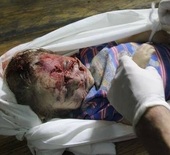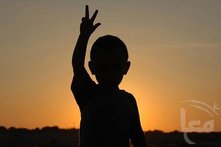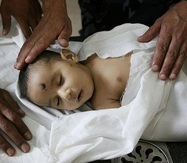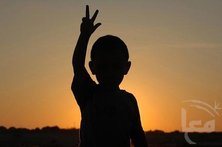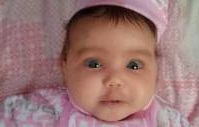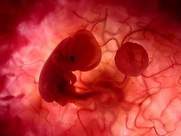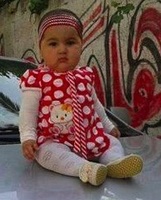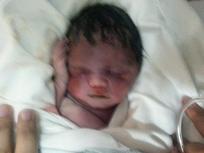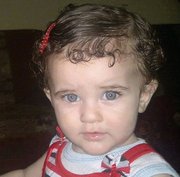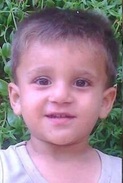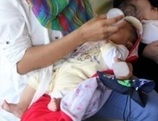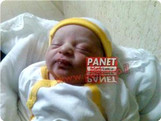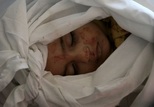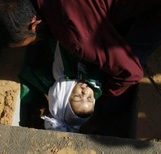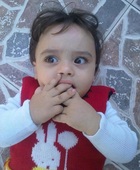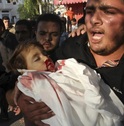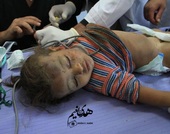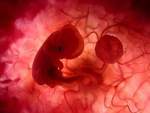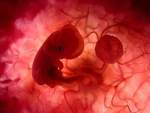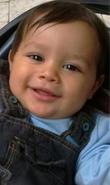OPERATION PROTECTIVE EDGE 8 JULY-26 AUG 2014
OPERATION PILLAR OF CLOUD 14-21 NOV 2012
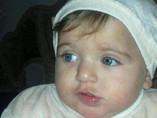
Rami al-Shandi 18 months
Killed 19 nov 2012
Killed 19 nov 2012
killing his son, according to BBC Middle East bureau chief Paul Danahar, who arrived in Gaza earlier Thursday. Misharawi’s sister-in-law was also killed, and his brother wounded. Misharawi told Danahar that, when the round landed, there was no fighting in his residential neighborhood.
“We’re all one team in Gaza,” Danahar told me, saying that Misharawi is a BBC video and photo editor. After spending a “few hours” with his grieving colleague, he wrote on Twitter, ”Questioned asked here is: if Israel can kill a man riding on a moving motorbike (as they did last month) how did Jihad’s son get killed.”
Danahar also shared the following photos of Misharawi’s small Gaza home, which appears to have been heavily damaged. The place where the round punctured his ceiling is clearly visible.
BBC World editor Jon Williams sent a memo about the young child’s death to colleagues, according to The Telegraph:
Our thoughts are with Jihad and the rest of the team in Gaza.
This is a particularly difficult moment for the whole bureau in Gaza.
We’re fortunate to have such a committed and courageous team there. It’s a sobering reminder of the challenges facing many of our colleagues.
Reuters also had a photographer at the Gaza City hospital where Misharawi took his son. The story that these photos tell, of loss and confusion, may help inform the Palestinian reactions – and, as the photos continue to spread widely on social media, perhaps the reactions from beyond the Palestinian territories – to the violence between Israel and Gaza.
“We’re all one team in Gaza,” Danahar told me, saying that Misharawi is a BBC video and photo editor. After spending a “few hours” with his grieving colleague, he wrote on Twitter, ”Questioned asked here is: if Israel can kill a man riding on a moving motorbike (as they did last month) how did Jihad’s son get killed.”
Danahar also shared the following photos of Misharawi’s small Gaza home, which appears to have been heavily damaged. The place where the round punctured his ceiling is clearly visible.
BBC World editor Jon Williams sent a memo about the young child’s death to colleagues, according to The Telegraph:
Our thoughts are with Jihad and the rest of the team in Gaza.
This is a particularly difficult moment for the whole bureau in Gaza.
We’re fortunate to have such a committed and courageous team there. It’s a sobering reminder of the challenges facing many of our colleagues.
Reuters also had a photographer at the Gaza City hospital where Misharawi took his son. The story that these photos tell, of loss and confusion, may help inform the Palestinian reactions – and, as the photos continue to spread widely on social media, perhaps the reactions from beyond the Palestinian territories – to the violence between Israel and Gaza.
OPERATION PILLAR OF CLOUD 14-21 NOV 2012
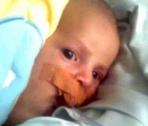
Mohammed Helou 7 months
Killed 24 mar 2012
Died due to deprivation by Israel
A seven-month-old baby in Gaza died on Friday evening after medical equipment he was connected to switched off as a result of a power cut, a Hamas-affiliated TV channel said.
Gaza medical spokesman Adham Abu Salmiya confirmed the incident, adding that the infant was born with respiratory problems and doctors had recommended the use of mechanical breathing apparatus to be used at home.
The father of the child had turned on the apparatus before going to sleep but during the night a power cut caused it to switch off, resulting in the infant’s death, Hamas’ Al-Aqsa TV reported.
The child was the “first victim of the current power crisis in Gaza,” Abu Salmiya said, warning that the medical sector in the coastal enclave is in jeopardy.
Recent fuel shortages have had a catastrophic effect on daily life in the Gaza Strip, with people facing daily power cuts of up to 18 hours a day
Killed 24 mar 2012
Died due to deprivation by Israel
A seven-month-old baby in Gaza died on Friday evening after medical equipment he was connected to switched off as a result of a power cut, a Hamas-affiliated TV channel said.
Gaza medical spokesman Adham Abu Salmiya confirmed the incident, adding that the infant was born with respiratory problems and doctors had recommended the use of mechanical breathing apparatus to be used at home.
The father of the child had turned on the apparatus before going to sleep but during the night a power cut caused it to switch off, resulting in the infant’s death, Hamas’ Al-Aqsa TV reported.
The child was the “first victim of the current power crisis in Gaza,” Abu Salmiya said, warning that the medical sector in the coastal enclave is in jeopardy.
Recent fuel shortages have had a catastrophic effect on daily life in the Gaza Strip, with people facing daily power cuts of up to 18 hours a day
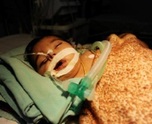
Adham Baroud 7 months
Killed 29 dec 2011
Seven-month old Gaza baby dies awaiting Israeli permission for operation
Adham Baroud was referred to Israel after a catheter inserted in a previous operation in Israel got infected. The boy was born suffering from congenital renal problems requiring specialised treatment that is unavailable in Gaza.
Doctors referred baby to Israeli hospital for treatment, but permission to exit Gaza never came.
A seven-month-baby suffering from renal failure died in a Gaza hospital while awaiting the go-ahead from Israeli authorities – who enforce a blockade around the Palestinian enclave – for an urgent operation.
Seven-month-old Adham Baroud died at the Al Rantissi Children’s Hospital’s in Gaza City at around 1am on 26 December. He had been referred to Israel for emergency treatment by his doctors in Gaza on 1 December.
By the 19th December, when this photo was taken, Adham was described by doctors at the hospital’s Intensive Care Unit as “terminal”.
Acting Hospital Director Dr Mustafa Al Aqila told Oxfam that Adham was referred to Israel after a catheter inserted four months earlier in a previous operation in Israel got infected. The boy was born suffering from congenital renal problems requiring specialised treatment that is unavailable in Gaza.
“Adham needed immediate surgery and we couldn"t provide that kind of service in Gaza,” Dr Al Aqila said. “We waited for Israel"s permission to send him for treatment, like we did in the past, but the more time passed the more complicated his situation became.”
“We want to expand our services but the siege limits our development,” Dr Al Aqila said.
While emergency beds for patients waiting for permission to travel for treatment may not always be immediately available in Israeli hospitals, Israel, as the occupying power, is obliged under international law to ensure the welfare of Palestinian civilians whenever the existing resources do not suffice.
At the moment, the Gaza Strip is also suffering from a serious shortage of kidney dialysis filters that is putting the lives of 450 Palestinians, including 15 children, at risk.
This problem is also related to the lack of coordination between the Ramallah-based health ministry, which is responsible for ordering and sending medical supplies to Gaza, and its counterpart in Gaza.
Renal dialysis filters are essential for the cleansing of kidneys, and patients normally require two to three dialysis rounds a week.
“Kidney dialysis is a cycle. If you take out one element, the treatment cycle is stopped, and that compromises everything,” Dr Al Aqila said.
Last week, around 960 filters were sent from the West Bank to Gaza, an emergency measure that allowed dialysis rounds to continue, but the problem will remain unless thousands are shipped to the enclave soon. The same problem has existed for other medical disposables and medicines throughout this year, imposing an ongoing medical crisis in Gaza.
Oxfam partner the Palestinian Centre for Human Rights (PCHR) called on Palestinian President Mahmoud Abbas to intervene urgently and get the health ministry in Ramallah to supply the blood filters to Gaza immediately. According to PCHR, there are currently 178 types of medicines and 190 types of medical consumables that are out of stock at Gaza"s health facilities.
“PCHR warned of the impact of the shortage of medicines on the lives of patients in the Gaza Strip, but the crisis has not improved and it has re-emerged with the shortage of medicines necessary for renal diseases,” the centre said, adding that long-term coordination between the two governments was now an urgent priority, especially under the current atmosphere of political reconciliation.
Killed 29 dec 2011
Seven-month old Gaza baby dies awaiting Israeli permission for operation
Adham Baroud was referred to Israel after a catheter inserted in a previous operation in Israel got infected. The boy was born suffering from congenital renal problems requiring specialised treatment that is unavailable in Gaza.
Doctors referred baby to Israeli hospital for treatment, but permission to exit Gaza never came.
A seven-month-baby suffering from renal failure died in a Gaza hospital while awaiting the go-ahead from Israeli authorities – who enforce a blockade around the Palestinian enclave – for an urgent operation.
Seven-month-old Adham Baroud died at the Al Rantissi Children’s Hospital’s in Gaza City at around 1am on 26 December. He had been referred to Israel for emergency treatment by his doctors in Gaza on 1 December.
By the 19th December, when this photo was taken, Adham was described by doctors at the hospital’s Intensive Care Unit as “terminal”.
Acting Hospital Director Dr Mustafa Al Aqila told Oxfam that Adham was referred to Israel after a catheter inserted four months earlier in a previous operation in Israel got infected. The boy was born suffering from congenital renal problems requiring specialised treatment that is unavailable in Gaza.
“Adham needed immediate surgery and we couldn"t provide that kind of service in Gaza,” Dr Al Aqila said. “We waited for Israel"s permission to send him for treatment, like we did in the past, but the more time passed the more complicated his situation became.”
“We want to expand our services but the siege limits our development,” Dr Al Aqila said.
While emergency beds for patients waiting for permission to travel for treatment may not always be immediately available in Israeli hospitals, Israel, as the occupying power, is obliged under international law to ensure the welfare of Palestinian civilians whenever the existing resources do not suffice.
At the moment, the Gaza Strip is also suffering from a serious shortage of kidney dialysis filters that is putting the lives of 450 Palestinians, including 15 children, at risk.
This problem is also related to the lack of coordination between the Ramallah-based health ministry, which is responsible for ordering and sending medical supplies to Gaza, and its counterpart in Gaza.
Renal dialysis filters are essential for the cleansing of kidneys, and patients normally require two to three dialysis rounds a week.
“Kidney dialysis is a cycle. If you take out one element, the treatment cycle is stopped, and that compromises everything,” Dr Al Aqila said.
Last week, around 960 filters were sent from the West Bank to Gaza, an emergency measure that allowed dialysis rounds to continue, but the problem will remain unless thousands are shipped to the enclave soon. The same problem has existed for other medical disposables and medicines throughout this year, imposing an ongoing medical crisis in Gaza.
Oxfam partner the Palestinian Centre for Human Rights (PCHR) called on Palestinian President Mahmoud Abbas to intervene urgently and get the health ministry in Ramallah to supply the blood filters to Gaza immediately. According to PCHR, there are currently 178 types of medicines and 190 types of medical consumables that are out of stock at Gaza"s health facilities.
“PCHR warned of the impact of the shortage of medicines on the lives of patients in the Gaza Strip, but the crisis has not improved and it has re-emerged with the shortage of medicines necessary for renal diseases,” the centre said, adding that long-term coordination between the two governments was now an urgent priority, especially under the current atmosphere of political reconciliation.
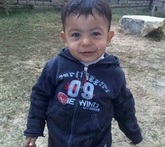
Islam Qregea 1
Killed 19 aug 2011
one-year-old Islam was killed with his father and uncle when the motorbike they were travelling on was targeted by Israeli forces.
One-year-old Islam lived in the ash-Shujaeya neighbourhood of Gaza City with his extended family, including his two uncles, Muhannad and Monzer. Islam’s father was ‘an active member in Islamic Jihad’s military wing and that made him a target,’ Muhannad explains. ‘On 18 August 2011 we started to hear a lot of bombing and explosions all around us. We also heard on the news about huge bombing attacks by Israeli jets and that the so called truce with the Palestinian organisations had collapsed.’ These airstrikes were in retaliation for a number of attacks on 18 August along the Israeli-Egyptian border, in which eight Israelis died.
Muhannad describes what happened the next day. ‘At around 9:00 pm on Friday, 19 August 2011, Monzer and I were on the ground floor talking, when we suddenly heard children in the street screaming: “Islam has been injured.” We both rushed out of the house to see the children carrying Islam, whose head was bleeding. “What happened?” I asked and they said he had fallen while running and hit his head hit on a stone.’ His uncle Monzer, who was a doctor, examined his wound and decided Islam needed to go to hospital for stitches. Islam’s father fetched his motorbike, and Monzer got on holding Islam in his arms as the three set off. Muhannad returned inside to watch the news. ‘At around 10:00 pm,’ he recalls, ‘I heard an explosion in our area and turned on the radio to hear what had happened. [...] Five minutes later I heard that three people, including a child and a doctor named Monzer Qraqe’a had been killed in the explosion.’
Muhannad rushed out of the house and caught a taxi to the hospital. On arrival, he was taken to the morgue to identify his two brothers and Islam. ‘They were blown to pieces and had extensive burns. Half of the left side of Islam’s face was burned and in pieces. His insides were hanging out of his stomach. His left shoulder was about to fall apart,’ Muhannad recalls. ‘This was the destiny of my two brothers and my nephew,’ he concludes. Islam would have celebrated his second birthday on 9 September.
According to the UN, following the attacks along the Israeli-Egyptian border ‘the Israeli Air Force carried out approximately 30 air strikes on the Gaza Strip’ between 19 August and 21 August 2011. Amnesty International reports that in the retaliatory air strikes ‘at least 20 Palestinians had been injured by 2 pm local time on Friday [19 August]. The ambulance and emergency services in Gaza reported that the majority of those injured were women and children.’
DCI-Palestine has documented the death of three children as a result of the air strikes in Gaza, two of whom were under two years old. The third child (13) was injured on 21 August, and died eight days later, as a result of his injuries.
Killed 19 aug 2011
one-year-old Islam was killed with his father and uncle when the motorbike they were travelling on was targeted by Israeli forces.
One-year-old Islam lived in the ash-Shujaeya neighbourhood of Gaza City with his extended family, including his two uncles, Muhannad and Monzer. Islam’s father was ‘an active member in Islamic Jihad’s military wing and that made him a target,’ Muhannad explains. ‘On 18 August 2011 we started to hear a lot of bombing and explosions all around us. We also heard on the news about huge bombing attacks by Israeli jets and that the so called truce with the Palestinian organisations had collapsed.’ These airstrikes were in retaliation for a number of attacks on 18 August along the Israeli-Egyptian border, in which eight Israelis died.
Muhannad describes what happened the next day. ‘At around 9:00 pm on Friday, 19 August 2011, Monzer and I were on the ground floor talking, when we suddenly heard children in the street screaming: “Islam has been injured.” We both rushed out of the house to see the children carrying Islam, whose head was bleeding. “What happened?” I asked and they said he had fallen while running and hit his head hit on a stone.’ His uncle Monzer, who was a doctor, examined his wound and decided Islam needed to go to hospital for stitches. Islam’s father fetched his motorbike, and Monzer got on holding Islam in his arms as the three set off. Muhannad returned inside to watch the news. ‘At around 10:00 pm,’ he recalls, ‘I heard an explosion in our area and turned on the radio to hear what had happened. [...] Five minutes later I heard that three people, including a child and a doctor named Monzer Qraqe’a had been killed in the explosion.’
Muhannad rushed out of the house and caught a taxi to the hospital. On arrival, he was taken to the morgue to identify his two brothers and Islam. ‘They were blown to pieces and had extensive burns. Half of the left side of Islam’s face was burned and in pieces. His insides were hanging out of his stomach. His left shoulder was about to fall apart,’ Muhannad recalls. ‘This was the destiny of my two brothers and my nephew,’ he concludes. Islam would have celebrated his second birthday on 9 September.
According to the UN, following the attacks along the Israeli-Egyptian border ‘the Israeli Air Force carried out approximately 30 air strikes on the Gaza Strip’ between 19 August and 21 August 2011. Amnesty International reports that in the retaliatory air strikes ‘at least 20 Palestinians had been injured by 2 pm local time on Friday [19 August]. The ambulance and emergency services in Gaza reported that the majority of those injured were women and children.’
DCI-Palestine has documented the death of three children as a result of the air strikes in Gaza, two of whom were under two years old. The third child (13) was injured on 21 August, and died eight days later, as a result of his injuries.

Malek Khaled Hamad Sha'at 1
Killed 18 aug 2011
one-year-old Malek was killed in an Israeli air strike as he sat with his father in the garden of their house in Rafah.
Malek lived with his extended family in Rafah, near the Egyptian border. According to his uncle, Malek's father was a member of the Palestinian Resistance Committees. On 18 August 2011, Malek’s father was sitting with his friends in the garden of their house waiting for Iftar, the evening meal that breaks the fast during Ramadan. Inside, Malek’s grandmother, Aziza, was cleaning and preparing the food for her family. ‘At around 5:00 pm, I heard my grandson, Malek, crying.’ Aziza explains he was crying for his father. ‘He kept crying: “Daddy, daddy” I laughed and said: “Go to your daddy.” He went out to his father in the garden, and I went back to cleaning and preparing food.’
Less than five minutes later there was a huge explosion which shook the house. ‘I wasn’t very scared because I am used to this whenever planes bomb the tunnels along the border, about 500 metres to the south.’ Smelling gas, Aziza suspected that their gas container had been hit by shrapnel and went out to the balcony to call for help from her neighbours. ‘I looked down to the garden and saw something that left me speechless: Dismembered body parts all over the garden. It was so horrifying I couldn’t speak.’
She ran down to the garden. ‘I stood in the middle of the garden and looked around in complete shock. I was surrounded by body parts scattered everywhere. I can’t even begin to describe what I saw.’ Then, Aziza noticed her son, Malek’s father. ‘His body was covered in shrapnel, but he was still breathing. He had Malek in his arms. Part of Malek’s head was blown off. His brain was hanging out of his skull and lying on his father’s chest. His insides were also hanging out of his stomach. There was a lot of blood and I couldn’t tell whether it was Malek’s or his father’s.’
She carried Malek out of the garden and placed him at the entrance to the house. ‘At that moment, his mother came out. She picked him up and started screaming.’ Aziza ran back to her son, ‘I placed his head on my chest.’ Whispering a prayer in his ear she asked him to repeat it before he died. ‘He actually repeated it,’ she recalls. ‘Then, his body became all loose.’ As the ambulances arrived, Aziza sat and watched in shock. ‘I just kept looking at the dead bodies. I wasn’t aware of what was going on around me.
I just kept looking at my son, Khaled and his son Malek. Then, ambulances took their bodies away.’
Aziza states that she has been badly affected by the incident. ‘I can’t say anything else except I’ve had difficulty sleeping since the incident. I can’t forget what I saw. I can’t forget the sight of my son and grandson killed in front of me like that.’ Malek would have celebrated his second birthday on 18 September.
According to the UN, ‘the Israeli Air Force carried out approximately 30 air strikes on the Gaza Strip’ between 19 August and 21 August 2011. These were in retaliation for a number of attacks on 18 August along the Israeli-Egyptian border, in which eight Israelis died. Amnesty International reports that in the retaliatory air strikes ‘at least 20 Palestinians had been injured by 2 pm local time on Friday [19 August]. The ambulance and emergency services in Gaza reported that the majority of those injured were women and children.’
DCI-Palestine has documented the death of three children as a result of the air strikes in Gaza, two of whom, Islam and Malek, were under two years old. The third child, Haitham (13) was injured on 21 August, and died eight days later, as a result of his injuries.
Killed 18 aug 2011
one-year-old Malek was killed in an Israeli air strike as he sat with his father in the garden of their house in Rafah.
Malek lived with his extended family in Rafah, near the Egyptian border. According to his uncle, Malek's father was a member of the Palestinian Resistance Committees. On 18 August 2011, Malek’s father was sitting with his friends in the garden of their house waiting for Iftar, the evening meal that breaks the fast during Ramadan. Inside, Malek’s grandmother, Aziza, was cleaning and preparing the food for her family. ‘At around 5:00 pm, I heard my grandson, Malek, crying.’ Aziza explains he was crying for his father. ‘He kept crying: “Daddy, daddy” I laughed and said: “Go to your daddy.” He went out to his father in the garden, and I went back to cleaning and preparing food.’
Less than five minutes later there was a huge explosion which shook the house. ‘I wasn’t very scared because I am used to this whenever planes bomb the tunnels along the border, about 500 metres to the south.’ Smelling gas, Aziza suspected that their gas container had been hit by shrapnel and went out to the balcony to call for help from her neighbours. ‘I looked down to the garden and saw something that left me speechless: Dismembered body parts all over the garden. It was so horrifying I couldn’t speak.’
She ran down to the garden. ‘I stood in the middle of the garden and looked around in complete shock. I was surrounded by body parts scattered everywhere. I can’t even begin to describe what I saw.’ Then, Aziza noticed her son, Malek’s father. ‘His body was covered in shrapnel, but he was still breathing. He had Malek in his arms. Part of Malek’s head was blown off. His brain was hanging out of his skull and lying on his father’s chest. His insides were also hanging out of his stomach. There was a lot of blood and I couldn’t tell whether it was Malek’s or his father’s.’
She carried Malek out of the garden and placed him at the entrance to the house. ‘At that moment, his mother came out. She picked him up and started screaming.’ Aziza ran back to her son, ‘I placed his head on my chest.’ Whispering a prayer in his ear she asked him to repeat it before he died. ‘He actually repeated it,’ she recalls. ‘Then, his body became all loose.’ As the ambulances arrived, Aziza sat and watched in shock. ‘I just kept looking at the dead bodies. I wasn’t aware of what was going on around me.
I just kept looking at my son, Khaled and his son Malek. Then, ambulances took their bodies away.’
Aziza states that she has been badly affected by the incident. ‘I can’t say anything else except I’ve had difficulty sleeping since the incident. I can’t forget what I saw. I can’t forget the sight of my son and grandson killed in front of me like that.’ Malek would have celebrated his second birthday on 18 September.
According to the UN, ‘the Israeli Air Force carried out approximately 30 air strikes on the Gaza Strip’ between 19 August and 21 August 2011. These were in retaliation for a number of attacks on 18 August along the Israeli-Egyptian border, in which eight Israelis died. Amnesty International reports that in the retaliatory air strikes ‘at least 20 Palestinians had been injured by 2 pm local time on Friday [19 August]. The ambulance and emergency services in Gaza reported that the majority of those injured were women and children.’
DCI-Palestine has documented the death of three children as a result of the air strikes in Gaza, two of whom, Islam and Malek, were under two years old. The third child, Haitham (13) was injured on 21 August, and died eight days later, as a result of his injuries.
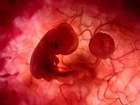
31 july 2011
Unborn child
Palestinian lady miscarries after choking on tear gas in Al-Khalil
A Palestinian pregnant woman miscarried at dawn Saturday when tear gas grenades fell onto her home in the old city of Al-Khalil.
Local sources said that Israeli troops during a raid on Palestinian neighborhoods in the old city fired without reason a heavy barrage of tear gas grenades randomly and some of them fell on the house of this woman.
They said the woman miscarried after she choked on tear gas and was rushed to hospital for medical treatment.
The incident generated popular outrage among the Palestinians in the city, according to the sources.
Unborn child
Palestinian lady miscarries after choking on tear gas in Al-Khalil
A Palestinian pregnant woman miscarried at dawn Saturday when tear gas grenades fell onto her home in the old city of Al-Khalil.
Local sources said that Israeli troops during a raid on Palestinian neighborhoods in the old city fired without reason a heavy barrage of tear gas grenades randomly and some of them fell on the house of this woman.
They said the woman miscarried after she choked on tear gas and was rushed to hospital for medical treatment.
The incident generated popular outrage among the Palestinians in the city, according to the sources.

No name 3-months
Killed 25 feb 2011
Israeli troops kill Palestinian 3-month-old infant
Israeli troops have attacked a peaceful Palestinian protest rally in an East al-Quds (Jerusalem) neighborhood, killing a three-month-old infant.
The three-month-old female infant died after inhaling tear gas fired by Israeli police in the Silwan neighborhood. Israeli police also fired rubber bullets during clashes with Palestinian protesters.
Killed 25 feb 2011
Israeli troops kill Palestinian 3-month-old infant
Israeli troops have attacked a peaceful Palestinian protest rally in an East al-Quds (Jerusalem) neighborhood, killing a three-month-old infant.
The three-month-old female infant died after inhaling tear gas fired by Israeli police in the Silwan neighborhood. Israeli police also fired rubber bullets during clashes with Palestinian protesters.
